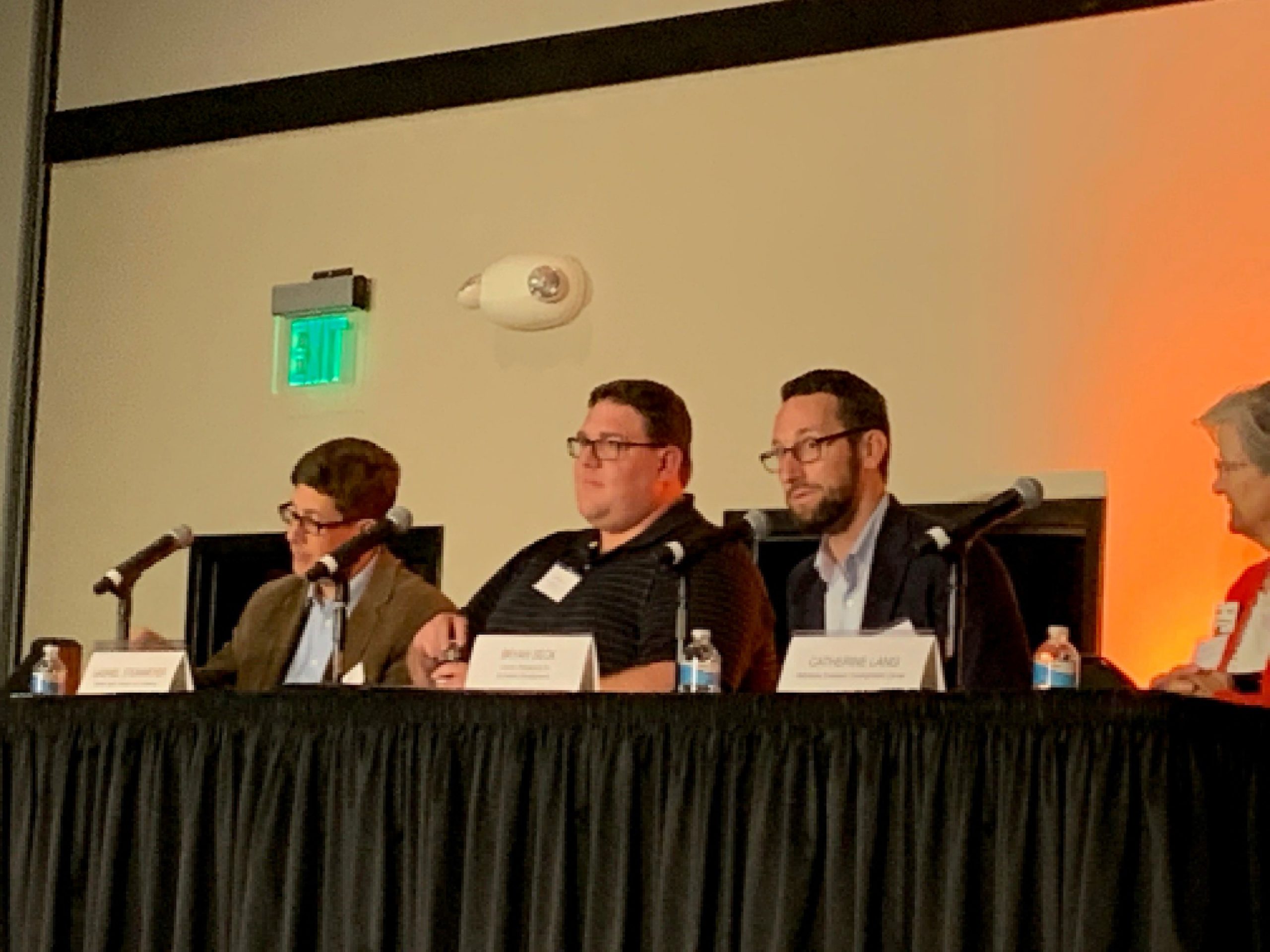Nebraska economic development leaders participate in a Kearney panel on early childhood. Left to right: Andy Lang, Gabriel Steinmeyer, Bryan Seck, Catherine Lang.
“Early childhood education is an economic development tool,” said Bryan Seck, Prosper Lincoln Developer for Employment Skills. “Communities must involve the business leadership by talking about the value of early childhood and its return to business in improved productivity and employee retention.”
This was a central theme of the 2019 Thriving Children, Families and Communities conference held in Kearney, NE on September 16. The event drew more than 400 attendees from over 90 communities, involving senators, state Board of Education members, business and economic development leaders, as well as education professionals representing Nebraska’s child care, K-12 and higher education systems. The event was sponsored by Buffett Early Childhood Fund, Nebraska Communities Foundation, Nebraska Children, First Five Nebraska, Nebraska Extension among others.
Seck and other economic development professionals from across the state spoke on a panel concentrating on the role quality early care and education options play in attracting and anchoring talent in Nebraska’s communities as a strategy for offsetting the statewide workforce crisis. It also touched on what business and economic development stakeholders need to know about the challenges facing the child care industry overall and the urgent need to more closely involve public and private sector interests in finding solutions that make economic sense for Nebraska communities.
In Lincoln, several businesses are looking creatively at how they can provide quality childcare for their employees, including Bryan Health, Madonna Rehabilitation Hospitals, Kabredlo’s Property, Southeast Community College, University of Nebraska – Lincoln and Federal Offices.
According to Nebraska Children and Families Foundation, research shows that for every dollar invested in high-quality childhood education, society gains up to $7.30 in the economic returns.
Regarding quality early childhood education, conference keynote speaker, Dr. Helen H Raikes said, “The children who’ve had these experiences are graduating high school more often, they’re more likely to go to college, they’re more likely to own their own homes, they make more money.”
Senior Policy Associate at First Five Nebraska, Elizabeth Everett, led a panel discussion on the link between early childhood and economic development and spoke on no cost/low cost ways employers can support working parents. She suggested advising employees about the child care subsidy and how to access it, organizing the workplace to accommodate the needs of nursing mothers and offering schedule flexibility for working parents of young children, among other things.
The conference offered multiple breakout sessions exploring different strategies employers can use to help working parents. These included low-cost methods such as referring employees to quality child care providers, providing information on child care subsidy and implementing schedule flexibility. Other strategies involved more substantial commitments such as offering Flexible Spending Accounts, developing partnerships with local child care providers and thinking through the elements of employer-sponsored child care.
The event also featured a discussion led by Deb Eggleston of the Nebraska Department of Economic Development on how communities can leverage LB840 Local Option Economic Development funds to build their local early childhood infrastructure. Attendees of this session heard from Myra Katherine Hale, Director of Pearl Academy in Fremont, one of the first child care programs in Nebraska to tap this source of funding.
More information about the conference can be found online at: https://buffettinstitute.nebraska.edu/news-and-events/events/2019-thriving-children-families-and-communities-conference

